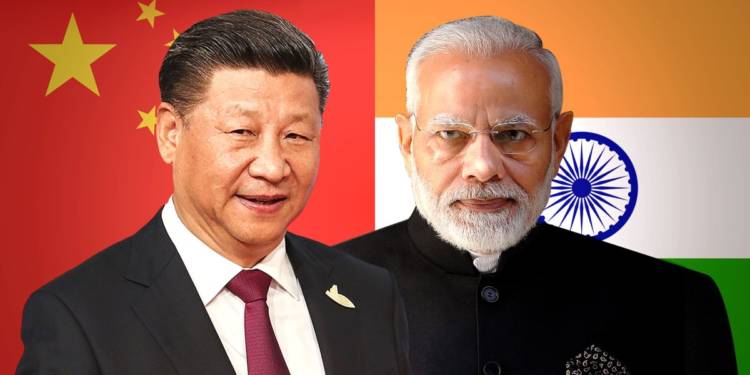Amid the second wave of China-made coronavirus pandemic, Beijing invited India to join hands with it and several other neighbouring subcontinent countries to fight the pandemic jointly. However, New Delhi on Thursday calmly rejected any such invitation, giving a fitting reply to Xi Jinping who is trying to act a ‘good samaritan’ to win favour and eventually use it to settle scores.
China’s Foreign Minister Wang Yi whilst attending the fourth multilateral dialogue involving foreign ministers of Afghanistan, Bangladesh, China, Nepal, Pakistan, and Sri Lanka spoke about coordinating the COVID-19 response in the region. Simultaneously, the Chinese ambassador to India Sun Weidong on Wednesday informed the media that Beijing had also invited India for the meeting.
“State Councilor&FM #WangYi @ virtual meeting of six FMs from China, Afghanistan, Pakistan, Nepal, Sri Lanka and Bangladesh on cooperating to fight #Covid19: Chinese side also extended an invitation to India for the meeting,” tweeted the ambassador.
State Councilor&FM #WangYi @ virtual meeting of six FMs from China, Afghanistan, Pakistan, Nepal, Sri Lanka and Bangladesh on cooperating to fight #Covid19: Chinese side also extended an invitation to India for the meeting.
— Embassy of The People's Republic of China in India (@China_Amb_India) April 28, 2021
Asked about the invitation, official sources said India hadn’t recognised the initiative and that its own efforts to engage its neighbours had been more significant. The statement of the Indian official holds true as for many months, China tried its vaccine diplomacy with African and Asian countries but given the poor quality of its vaccines, most of the countries around the world refused to purchase or even take them for free.
India exported more than 36 lakh vaccines to countries around the world, and China did not dispute the claim that Indian vaccines are better than Chinese ones. The vaccine export through PM Narendra Modi’s ‘Vaccine Maitri’ initiative significantly improved India’s prowess in the international community.
Such was India’s foreign policy that even Global Times, the CCP mouthpiece was forced to accept the narrative and published a report that argued, “Experts suggested that India’s vaccines are no less competitive than Chinese Covid-19 vaccines in both research and production capacity, considering that India has the world’s largest vaccine manufacturer and lower costs in labour and facilities.”
Read more: After being humbled by India in vaccine diplomacy, China sees a ray of hope in India’s misery
However, as India halted the vaccine exports owing to the burgeoning second wave, China saw it as an opportunity to export its poor quality vaccines to countries like Bangladesh, Nepal, Afghanistan, Pakistan, and Sri Lanka.
The countries that had earlier refused to purchase/take Chinese vaccines are now ready to have them because amid the surging cases of COVID-19 the Indian government is delaying the exports. While it may look like a nice humanitarian gesture from China, it is well evident that there is no such thing as ‘free lunch’ under the authoritarian regime of Xi Jinping.
Although, China cannot ‘debt trap’ India, it surely can claw its tentacles deep inside the aforementioned countries. And if India, for a hot second had agreed to China’s invitation, the CCP could have leveraged it to revoke the ban on TikTok, ZTE, Huawei and other Chinese products and applications.
However, once India is done with its domestic obligation – which shall happen soon given the exponential rise in the production capacity of Indian vaccine manufacturers in the last few weeks – and the Modi government lifts restriction on exports, the Indian vaccines will be ready to dominate the world once again. Thus India was wise to reject China’s offer.
